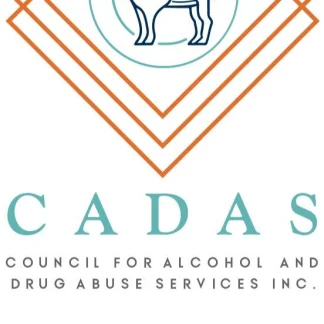Alternative Counseling
Alternative Counseling Associates is a private rehab located in Chattanooga, TN....
CADAS – Scholze Center for Adolescents is an alcohol and drug rehab in Chattanooga, TN. At the Scholze Center, all aspects of recovery needs are addressed as trained professionals address challenges related to substance abuse.
Scholze Center offers a full continuum of care
The 40-bed residential treatment program at the Scholze Center is designed exclusively for adolescents aged 13-18. The facility is situated along a quiet valley road and provides a serene setting. It ensures that every young resident receives evidence-based treatment and therapies along with holistic care.
Understanding the significance of education in an adolescent’s life, the center provides on-site educational services. The Scholze Center School is accredited and maintains a high level of accuracy to ensure the adolescent maintains his/her appropriate grade level.
The Scholze Center recognizes the therapeutic value of physical activity. The center incorporates regular physical fitness routines and recreational activities to promote overall wellness and complement the recovery process.
Through its aftercare services, The Scholze Center ensures a smooth transition back to society. Aftercare is provided for a full year with weekly meetings and access to local 12-step groups, individual therapy, family therapy, and/or local school support.
Contact us for more information: (423) 425-0201

Connect with CADAS - Scholze Center for Adolescents by calling their admissions team directly.
(423) 425-0201 Website Get DirectionsThe Joint Commission, formerly known as JCAHO, is a nonprofit organization that accredits rehab organizations and programs. Founded in 1951, the Joint Commision's mission is to improve the quality of patient care and demonstrating the quality of patient care.
Joint Commission Accreditation: Yes
State Licenses are permits issued by government agencies that allow rehab organizations to conduct business legally within a certain geographical area. Typically, the kind of program a rehab facility offers, along with its physical location, determines which licenses are required to operate legally.
State License: Tennessee License Number: L000000026624
Research clearly demonstrates that recovery is far more successful and sustainable when loved ones like family members participate in rehab and substance abuse treatment. Genetic factors may be at play when it comes to drug and alcohol addiction, as well as mental health issues. Family dynamics often play a critical role in addiction triggers, and if properly educated, family members can be a strong source of support when it comes to rehabilitation.
Group therapy is any therapeutic work that happens in a group (not one-on-one). There are a number of different group therapy modalities, including support groups, experiential therapy, psycho-education, and more. Group therapy involves treatment as well as processing interaction between group members.
In individual therapy, a patient meets one-on-one with a trained psychologist or counselor. Therapy is a pivotal part of effective substance abuse treatment, as it often covers root causes of addiction, including challenges faced by the patient in their social, family, and work/school life.
Motivational Interviewing (MI) is a clinical approach to helping people with substance abuse issues and other conditions shift behavior in positive ways. It is more goal-oriented than traditional psychotherapy, as MI counselors directly attempt to get clients to consider making behavioral change (rather than wait for them to come to conclusions themselves). Its primary purpose is to resolve ambivalence and help clients become able to make healthy choices freely.
Group therapy is any therapeutic work that happens in a group (not one-on-one). There are a number of different group therapy modalities, including support groups, experiential therapy, psycho-education, and more. Group therapy involves treatment as well as processing interaction between group members.
In individual therapy, a patient meets one-on-one with a trained psychologist or counselor. Therapy is a pivotal part of effective substance abuse treatment, as it often covers root causes of addiction, including challenges faced by the patient in their social, family, and work/school life.
Motivational Interviewing (MI) is a clinical approach to helping people with substance abuse issues and other conditions shift behavior in positive ways. It is more goal-oriented than traditional psychotherapy, as MI counselors directly attempt to get clients to consider making behavioral change (rather than wait for them to come to conclusions themselves). Its primary purpose is to resolve ambivalence and help clients become able to make healthy choices freely.
In individual therapy, a patient meets one-on-one with a trained psychologist or counselor. Therapy is a pivotal part of effective substance abuse treatment, as it often covers root causes of addiction, including challenges faced by the patient in their social, family, and work/school life.
Motivational Interviewing (MI) is a clinical approach to helping people with substance abuse issues and other conditions shift behavior in positive ways. It is more goal-oriented than traditional psychotherapy, as MI counselors directly attempt to get clients to consider making behavioral change (rather than wait for them to come to conclusions themselves). Its primary purpose is to resolve ambivalence and help clients become able to make healthy choices freely.
Motivational Interviewing (MI) is a clinical approach to helping people with substance abuse issues and other conditions shift behavior in positive ways. It is more goal-oriented than traditional psychotherapy, as MI counselors directly attempt to get clients to consider making behavioral change (rather than wait for them to come to conclusions themselves). Its primary purpose is to resolve ambivalence and help clients become able to make healthy choices freely.
Alternative Counseling Associates is a private rehab located in Chattanooga, TN....
Situated in Chattanooga, Tennessee, Erlanger Behavioral Health Hospital is a 94-...
Innervention Services is a private rehab located in Chattanooga, Tennessee. Inne...
Volunteer Behavioral Health - Johnson Mental Health Center is located in Chattan...